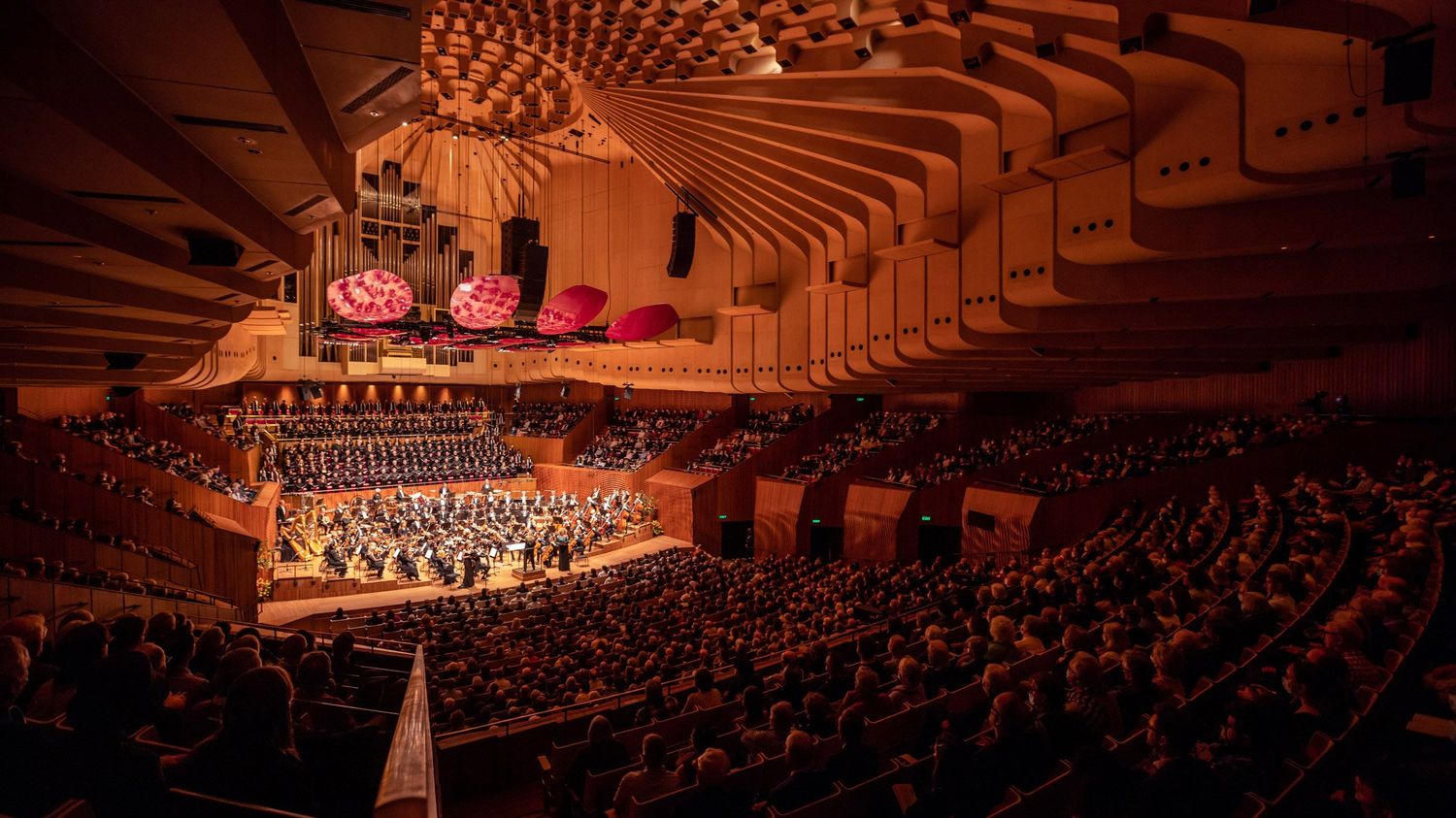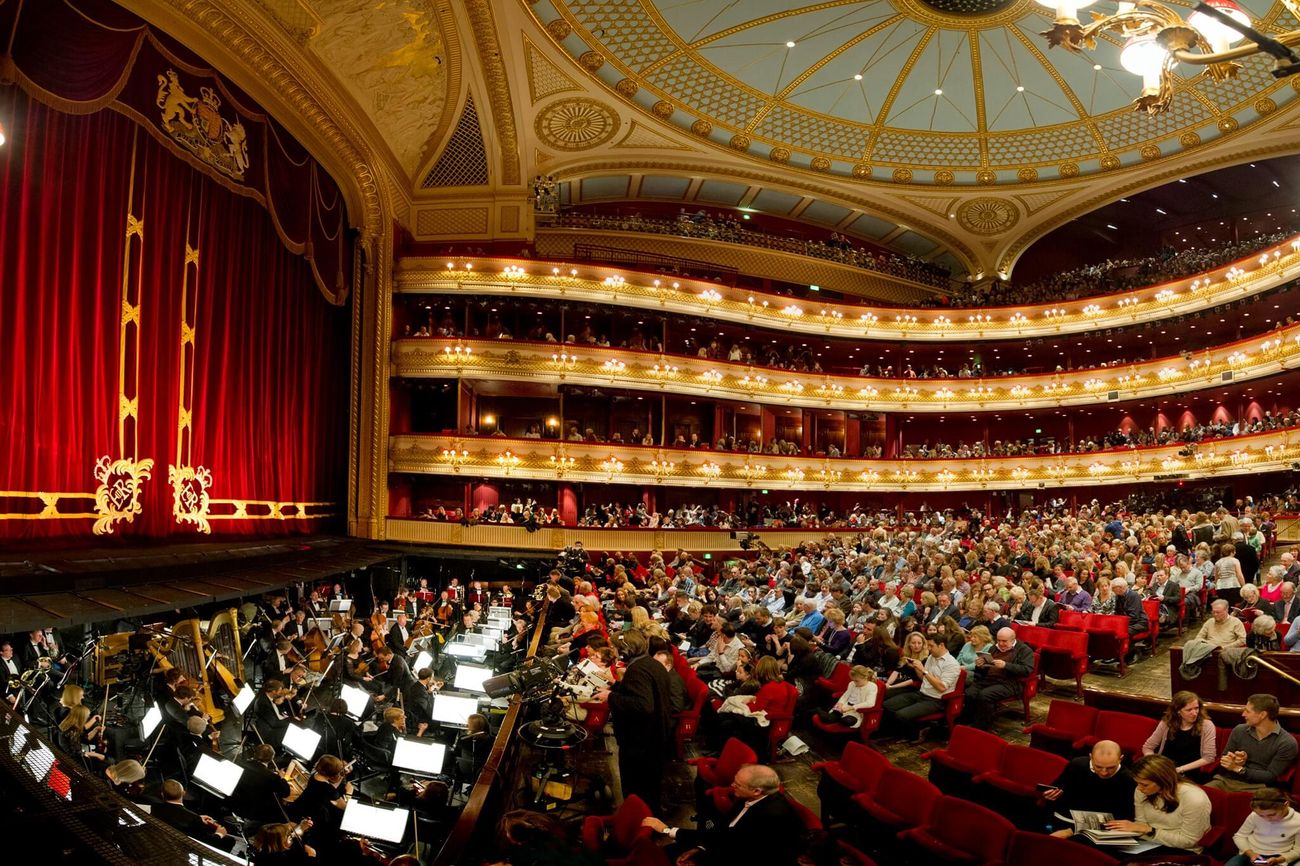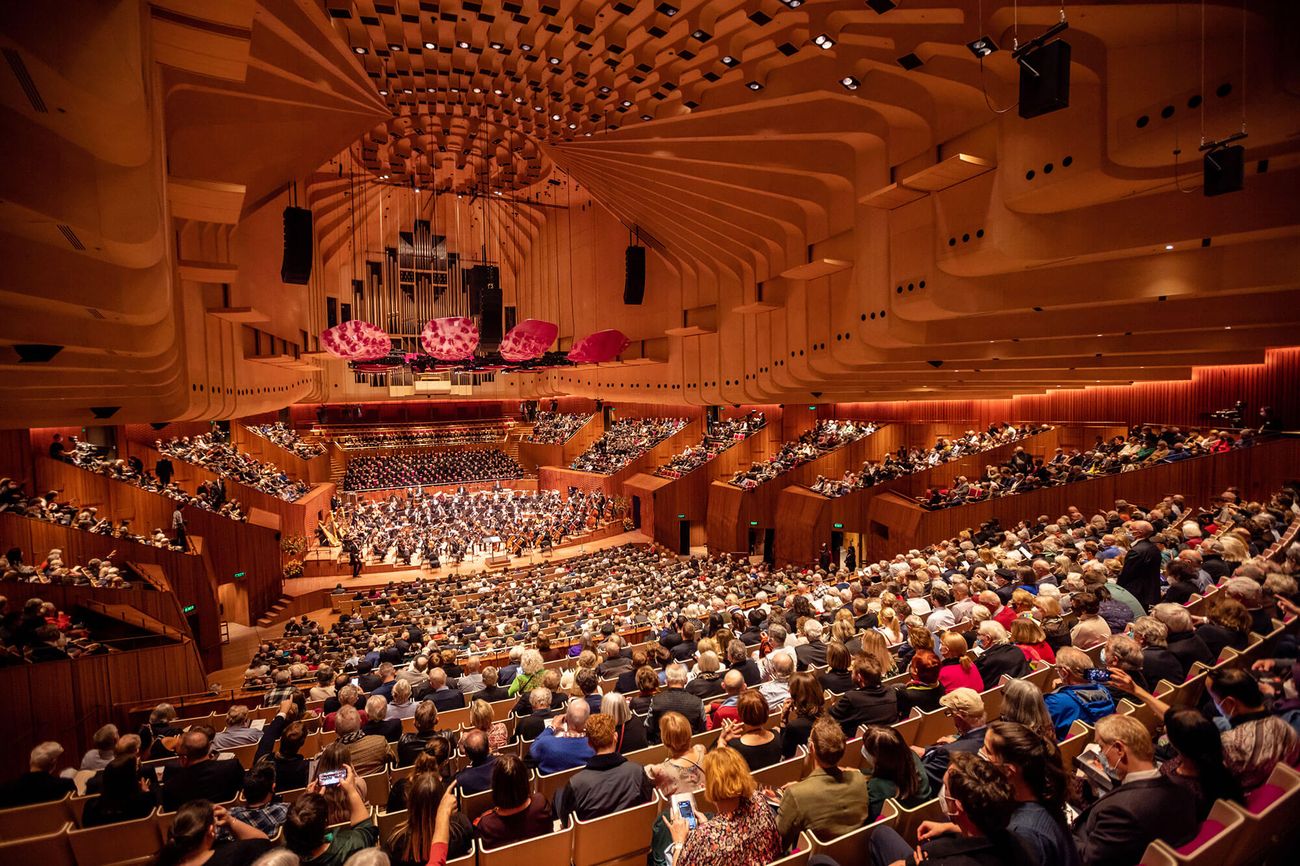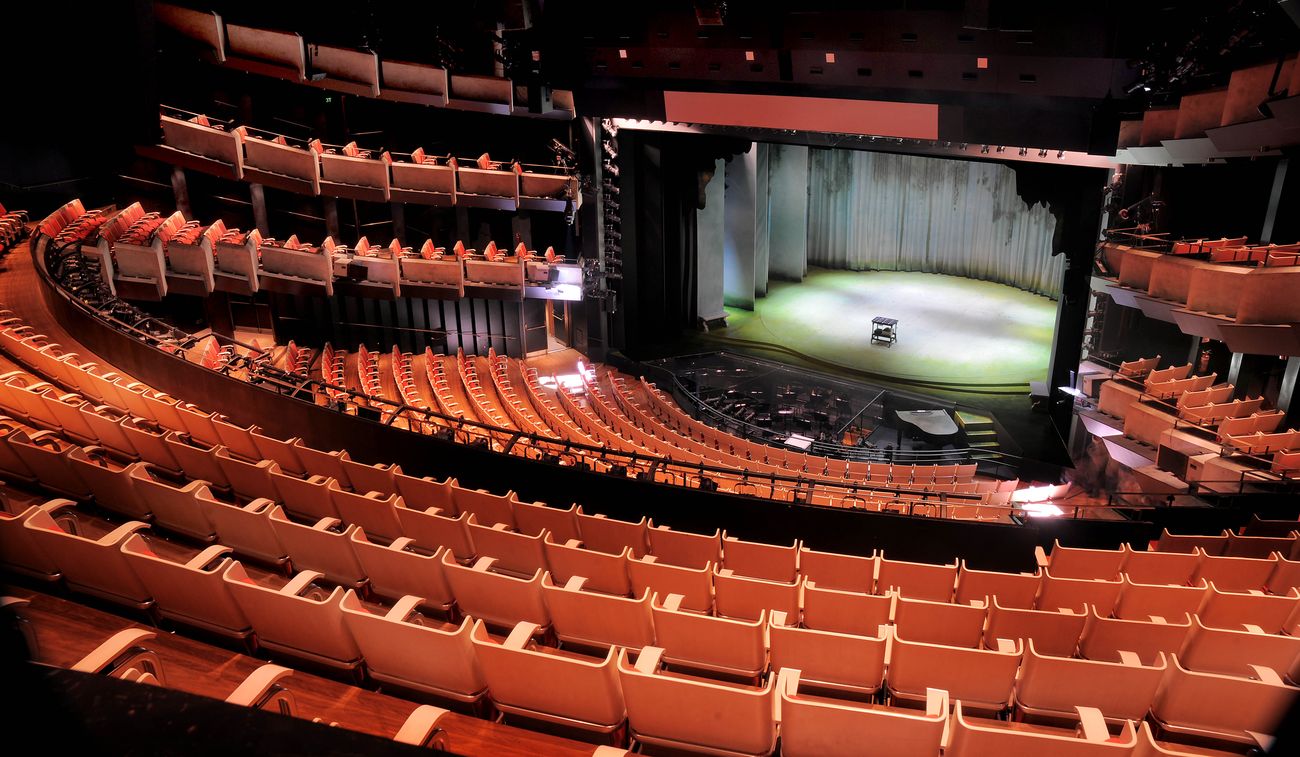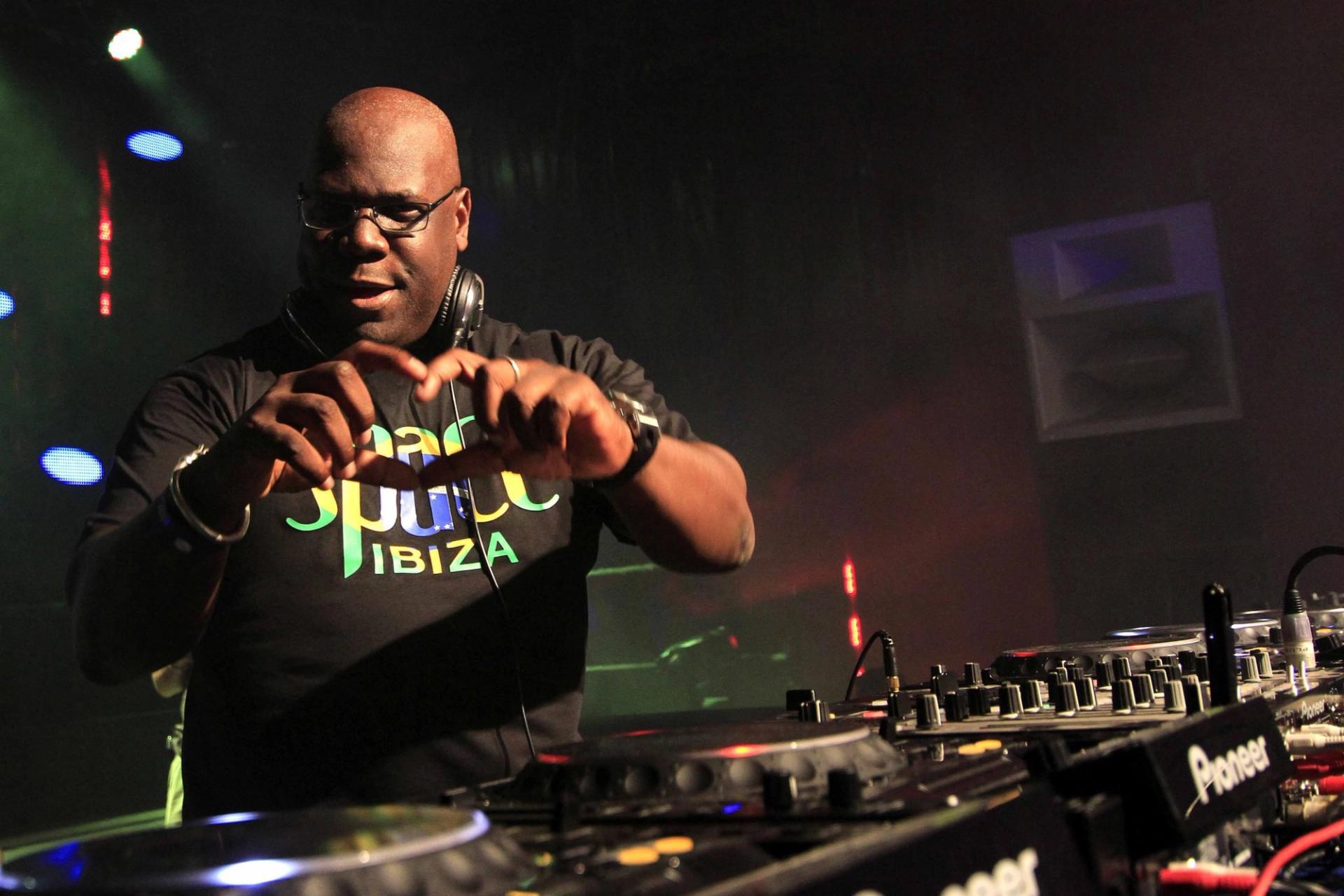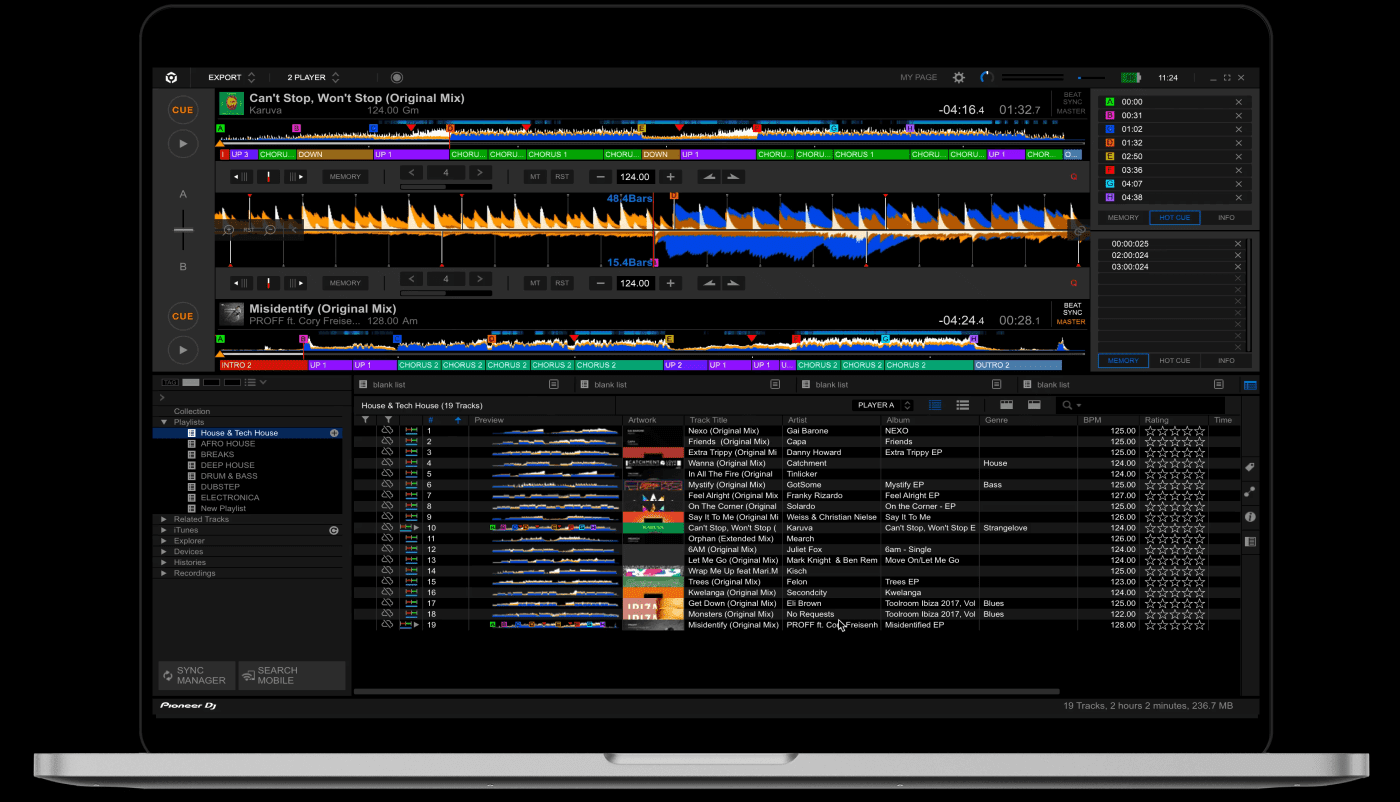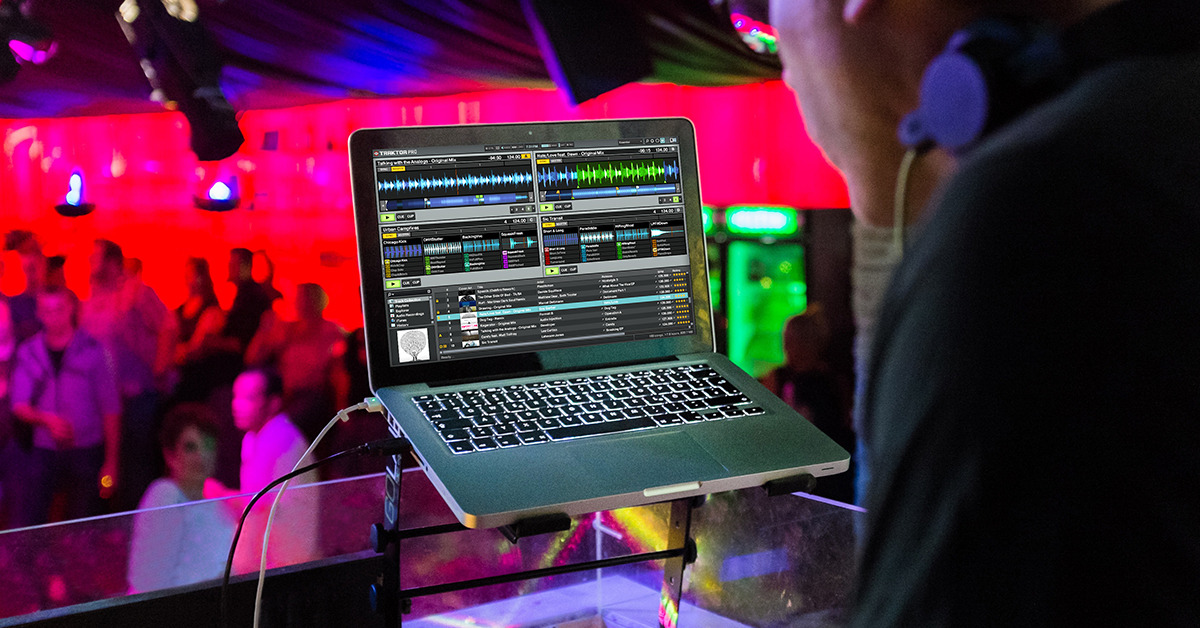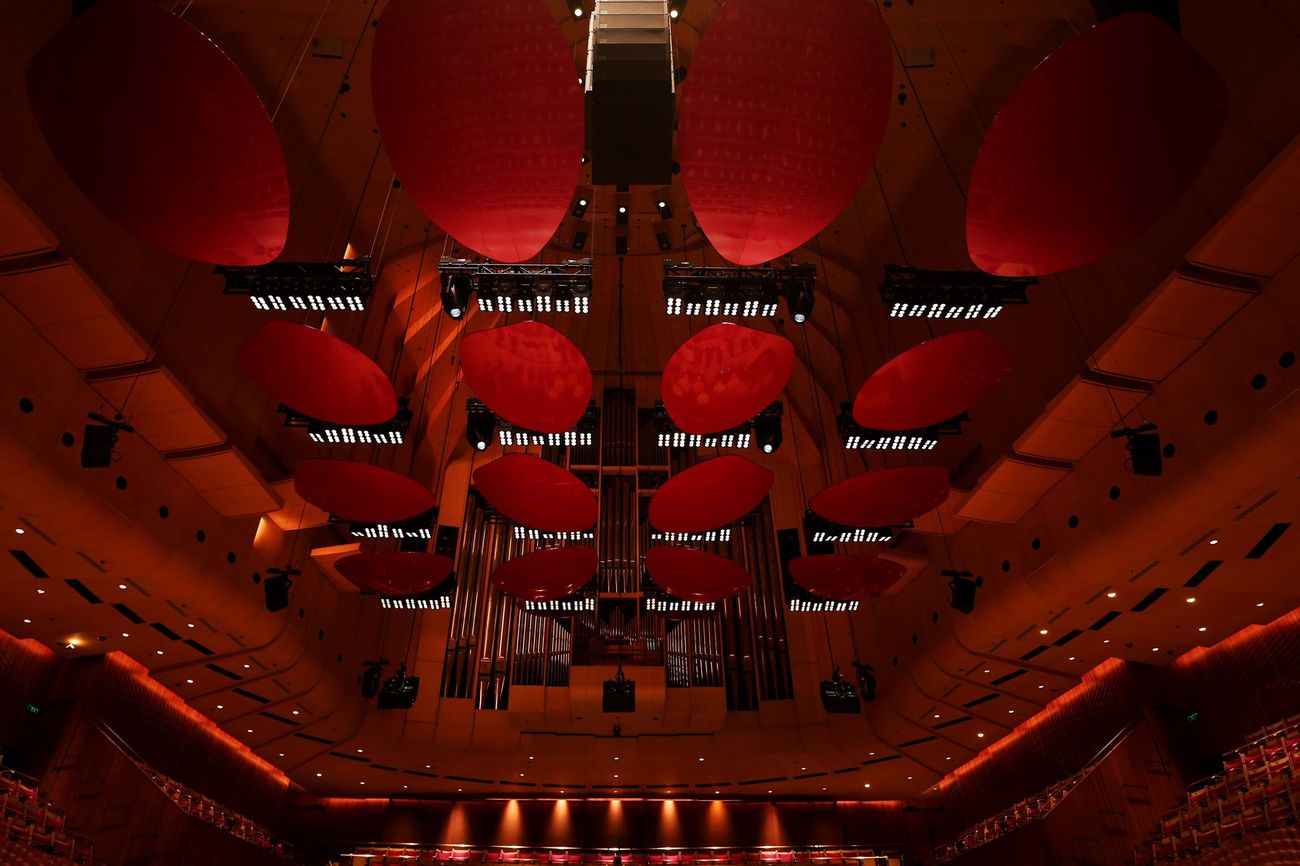Home>Production & Technology>DJ>What Is A House DJ
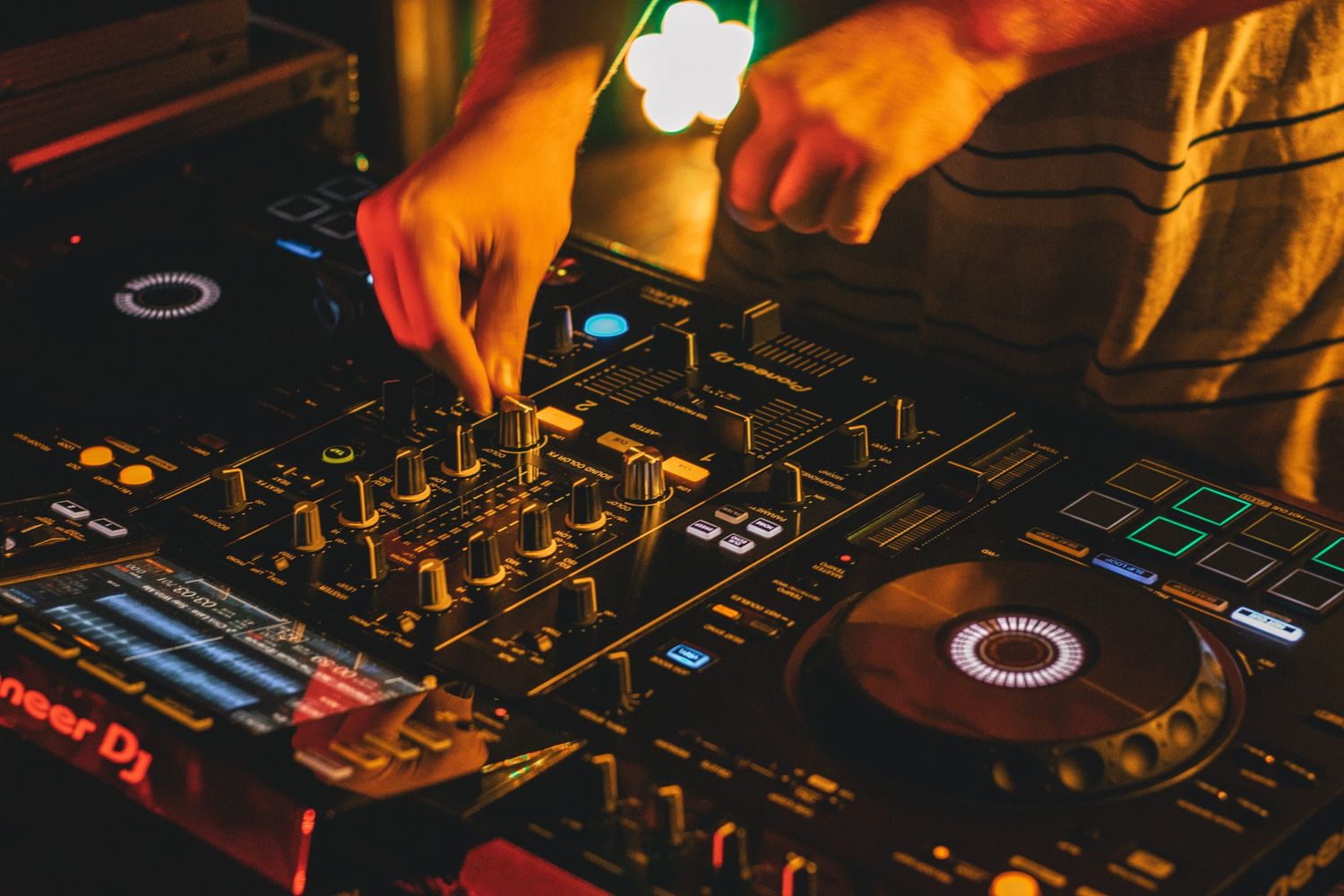

DJ
What Is A House DJ
Published: March 4, 2024
Discover what a house DJ does and how they create unforgettable beats. Learn about the skills and techniques that make a DJ successful in the music industry.
(Many of the links in this article redirect to a specific reviewed product. Your purchase of these products through affiliate links helps to generate commission for AudioLover.com, at no extra cost. Learn more)
Table of Contents
Introduction
House music is a genre that has evolved into a global phenomenon, captivating audiences with its infectious beats and vibrant energy. At the heart of this musical movement are the talented individuals known as house DJs. These individuals possess an innate ability to curate seamless and electrifying sonic experiences, captivating audiences and creating an irresistible urge to move to the rhythm.
House DJs are the architects of unforgettable nights, orchestrating the ebb and flow of energy on the dance floor with their expertly crafted mixes. Their mastery of blending tracks, reading the crowd, and creating an immersive atmosphere sets the stage for unforgettable moments of musical euphoria.
In the realm of electronic dance music, house DJs hold a special place, revered for their ability to transport listeners to a state of pure bliss through their carefully selected tracks and seamless transitions. Their artistry extends beyond simply playing music; it encompasses the ability to understand the nuances of rhythm, melody, and emotion, and translate them into a captivating auditory experience.
As the pulsating heartbeat of the electronic music scene, house DJs play a crucial role in shaping the sonic landscape of clubs, festivals, and underground parties. Their ability to craft a sonic journey that resonates with diverse audiences is a testament to their profound understanding of music and their innate talent for creating an electrifying atmosphere.
In the following sections, we will delve into the multifaceted world of house DJs, exploring the skills, history, and diverse styles that define this captivating genre. Additionally, we will uncover the essential equipment and techniques that empower house DJs to weave their magic on the dance floor. Join us as we embark on a journey through the captivating realm of house music and the talented individuals who bring its pulsating rhythms to life.
What Does a House DJ Do?
At the core of their craft, a house DJ serves as a sonic storyteller, weaving together a seamless tapestry of beats, melodies, and rhythms to create an immersive and electrifying experience for their audience. Their role extends far beyond simply playing music; it encompasses the art of reading the crowd, understanding the nuances of musical energy, and orchestrating the perfect sonic journey.
A house DJ's primary responsibility is to curate a musical journey that resonates with the audience, creating an atmosphere that transcends the ordinary and transports listeners to a state of euphoria. They meticulously select tracks that build and release tension, creating a dynamic flow that keeps the dance floor pulsating with energy.
In addition to track selection, house DJs are masters of the mix, seamlessly blending one track into the next with precision and finesse. Their ability to create smooth transitions and maintain a continuous groove throughout their set is a testament to their technical skill and deep understanding of music theory and structure.
Furthermore, house DJs are adept at reading the energy of the crowd, adjusting their set in real time to ensure that the music resonates with the audience's mood and desires. This intuitive connection allows them to create a symbiotic relationship with the dance floor, where the energy of the crowd influences the direction of the music, and vice versa.
Beyond their performances, house DJs often engage in extensive crate-digging, scouring record stores, online platforms, and underground channels to discover hidden gems and timeless classics that will elevate their sets. This dedication to musical exploration and discovery is a testament to their passion for the art form and their commitment to delivering exceptional experiences to their audience.
In essence, a house DJ's role is to serve as a conduit for musical expression, channeling the energy of the crowd and the essence of the music into a transcendent experience that lingers in the hearts and minds of their audience long after the last track has faded into the night. Their ability to harness the power of music and create moments of pure euphoria is what sets them apart as true maestros of the dance floor.
The History of House Music
The history of house music is a captivating journey that traces its roots to the vibrant and diverse musical landscape of Chicago in the 1980s. Emerging from the underground club culture and the innovative spirit of DJs and producers, house music quickly became a cultural force, captivating audiences with its infectious rhythms and soul-stirring melodies.
The birth of house music can be attributed to the pioneering efforts of DJs and producers who sought to create a new sonic identity that reflected the pulse of the city and the diverse influences of disco, funk, and electronic music. Drawing inspiration from the rhythmic intensity of disco and the electronic innovations of synthesizers and drum machines, these trailblazers set out to craft a sound that would define a generation.
At the forefront of this movement were visionaries such as Frankie Knuckles, Larry Heard, and Marshall Jefferson, who deftly blended elements of soul, funk, and electronic music to create a genre that resonated deeply with audiences. The legendary Warehouse club, where Frankie Knuckles held court as the resident DJ, became the epicenter of this burgeoning musical revolution, serving as a breeding ground for the infectious rhythms and pulsating energy that would define house music.
As the sound of house music began to permeate the airwaves and captivate dance floors, its influence spread far beyond the confines of Chicago, reaching cities across the globe and igniting a cultural phenomenon. From the underground clubs of New York to the vibrant dance scenes of Ibiza and London, the infectious beats and soul-stirring melodies of house music became a unifying force, transcending boundaries and uniting diverse communities under its rhythmic spell.
The evolution of house music gave rise to a myriad of subgenres, each with its own distinct characteristics and sonic landscapes. From the soulful grooves of deep house to the high-energy rhythms of tech house and the hypnotic melodies of progressive house, the genre continued to expand and diversify, embracing new influences and pushing the boundaries of sonic exploration.
Today, the legacy of house music endures as a testament to the power of musical innovation and the unifying force of rhythm and melody. Its impact on popular culture, electronic music, and the global dance community is undeniable, serving as a timeless reminder of the boundless creativity and unbridled passion that define this enduring genre.
Skills and Equipment Needed
Becoming a proficient house DJ requires a unique blend of technical expertise, creative intuition, and an innate understanding of the art of DJing. From mastering the intricacies of beatmatching to creating seamless transitions and captivating the crowd, house DJs must possess a diverse skill set that enables them to curate unforgettable sonic experiences. Additionally, they rely on a range of specialized equipment to bring their musical visions to life. Let's explore the essential skills and equipment needed to excel in the world of house DJing.
Essential Skills
-
Beatmatching and Mixing: A fundamental skill for any house DJ is the ability to seamlessly blend tracks together through precise beatmatching. This involves synchronizing the tempo and rhythm of two or more songs to create a seamless transition, maintaining the flow of the music and keeping the dance floor energized.
-
Music Selection: A keen understanding of musical genres, styles, and the ability to read the crowd's energy are essential for selecting tracks that resonate with the audience. House DJs must have a vast knowledge of music and the intuition to curate a set that builds and releases energy in harmony with the crowd's mood.
-
Performance and Crowd Interaction: The ability to engage and connect with the audience is crucial for a house DJ. Reading the energy of the crowd, gauging their response, and adjusting the set in real time are skills that elevate a DJ's performance from a mere playlist to an immersive experience.
-
Technical Proficiency: Familiarity with DJ software, controllers, mixers, and other equipment is essential. House DJs must be adept at navigating their chosen tools to execute flawless mixes and manipulate the sound to create a captivating sonic journey.
-
Creativity and Adaptability: Embracing innovation, experimenting with new sounds, and adapting to evolving trends are vital for staying relevant and pushing the boundaries of creativity within the genre.
Essential Equipment
-
DJ Controller or Turntables: These are the primary interfaces for manipulating and mixing tracks. Modern DJs often use digital controllers that integrate with DJ software, while traditionalists may opt for classic vinyl turntables for a more tactile experience.
-
Headphones: High-quality headphones are essential for cueing and monitoring tracks, allowing DJs to preview upcoming mixes and ensure seamless transitions.
-
Laptop or Media Player: The digital library of music is stored and managed on a laptop or media player, providing access to an extensive collection of tracks for performance.
-
DJ Software: Specialized software such as Serato, Traktor, or Rekordbox is utilized for beatmatching, mixing, and manipulating tracks during performances.
-
Monitor Speakers: These provide the DJ with clear, accurate sound for monitoring and fine-tuning the mix.
-
Mixer: Essential for blending and transitioning between tracks, the mixer allows DJs to adjust levels, apply effects, and manipulate the sound during performances.
Mastering these skills and utilizing the right equipment empowers house DJs to craft immersive sonic experiences that resonate deeply with their audience, ensuring that the dance floor pulsates with energy from the first beat to the last.
Different Styles of House Music
House music is a genre celebrated for its remarkable diversity, giving rise to a myriad of subgenres, each with its own distinct characteristics and sonic landscapes. From soulful melodies to pulsating rhythms, the evolution of house music has spawned a rich tapestry of styles that continue to captivate audiences worldwide. Let's explore some of the prominent styles that define the multifaceted world of house music.
-
Deep House: Known for its soulful and atmospheric sound, deep house embraces smooth, jazzy chords, and hypnotic basslines. Characterized by its laid-back groove and emotive melodies, deep house creates an immersive and introspective experience, often evoking a sense of warmth and nostalgia.
-
Tech House: Fusing the rhythmic elements of techno with the soulful essence of house music, tech house is renowned for its high-energy beats, driving basslines, and infectious hooks. This genre thrives on its ability to ignite dance floors with its dynamic fusion of raw, industrial textures and euphoric melodies.
-
Progressive House: Defined by its melodic richness and uplifting energy, progressive house builds immersive sonic landscapes through soaring melodies, cascading arpeggios, and euphoric chord progressions. Its ability to evoke a sense of euphoria and emotional transcendence makes it a staple in festival and club settings.
-
Soulful House: Embracing the soulful roots of house music, this subgenre infuses rich, gospel-inspired vocals, and lush instrumentation to create a deeply emotive and spiritually uplifting experience. Soulful house resonates with its expressive lyricism, organic instrumentation, and a profound connection to the genre's historical roots.
-
Afro House: Drawing inspiration from the rhythmic traditions of Africa, Afro house pulsates with vibrant percussion, infectious rhythms, and hypnotic chants. Its fusion of traditional African elements with contemporary electronic production results in a captivating and invigorating sonic experience that celebrates cultural heritage and musical innovation.
-
Jackin' House: Known for its infectious grooves and funky basslines, jackin' house pays homage to the classic sounds of disco and funk while infusing them with a modern, high-energy twist. This subgenre thrives on its ability to induce unbridled joy and exuberance on the dance floor, making it a favorite among house music aficionados.
-
Minimal House: Characterized by its stripped-down and understated approach, minimal house thrives on intricate rhythms, subtle textures, and hypnotic repetition. This subgenre embraces a less-is-more ethos, creating a mesmerizing and immersive sonic journey through its meticulous attention to sonic detail and spatial intricacies.
These diverse styles represent the kaleidoscopic nature of house music, each offering a unique sonic experience that resonates with a broad spectrum of listeners. As the genre continues to evolve and diversify, it remains a testament to the boundless creativity and unifying power of rhythm and melody.
How to Become a House DJ
Becoming a proficient house DJ is a journey that requires dedication, passion, and a deep understanding of the art of DJing. Whether you are a budding music enthusiast or an aspiring DJ looking to make your mark in the electronic music scene, the path to becoming a house DJ is paved with opportunities for growth, creativity, and sonic exploration. Here are essential steps to embark on this exhilarating journey:
1. Cultivate a Deep Understanding of House Music
To embark on the path of becoming a house DJ, it is crucial to immerse yourself in the rich tapestry of house music. Explore the diverse subgenres, study the evolution of the genre, and familiarize yourself with iconic artists and timeless classics. This foundational knowledge will serve as a compass, guiding your artistic expression and shaping your sonic identity as a house DJ.
2. Master the Art of DJing
Acquiring technical proficiency is fundamental to becoming a skilled house DJ. Invest time in mastering beatmatching, mixing, and the use of DJ software and controllers. Familiarize yourself with the intricacies of manipulating tracks, creating seamless transitions, and harnessing the power of effects to elevate your performances.
3. Build a Diverse Music Collection
Curate a diverse and extensive music collection that spans various styles and moods within the realm of house music. Explore record stores, digital platforms, and underground channels to discover hidden gems, timeless classics, and cutting-edge tracks that will enrich your sets and captivate your audience.
4. Hone Your Performance Skills
Develop the ability to read the energy of the crowd, engage with your audience, and create a symbiotic relationship that elevates the atmosphere on the dance floor. Practice the art of storytelling through your sets, building and releasing tension, and crafting a sonic journey that resonates deeply with your listeners.
5. Embrace Innovation and Creativity
Stay attuned to emerging trends, experiment with new sounds, and push the boundaries of creativity within the genre. Embrace innovation and let your artistic vision flourish, infusing your sets with a distinct sonic identity that sets you apart as a unique voice in the world of house music.
6. Network and Collaborate
Engage with the vibrant community of DJs, producers, and music enthusiasts within the electronic music scene. Attend events, connect with fellow artists, and seek opportunities to collaborate and share your passion for house music. Building a network of like-minded individuals can open doors to new opportunities and inspire artistic growth.
7. Perform and Showcase Your Talent
Seek opportunities to perform at local venues, clubs, and events to showcase your talent and connect with audiences. Embrace each performance as an opportunity to refine your skills, captivate listeners, and leave a lasting impression with your unique musical expression.
By embracing these essential steps and nurturing your passion for house music, you can embark on a transformative journey to become a proficient and influential house DJ. As you continue to evolve and refine your craft, remember that the art of DJing is a dynamic and ever-evolving pursuit, fueled by creativity, dedication, and an unwavering love for the power of music.
Conclusion
In conclusion, the world of house DJing represents a captivating fusion of technical prowess, creative intuition, and an unwavering passion for the art of music. House DJs serve as the architects of sonic experiences, weaving together a rich tapestry of beats, melodies, and rhythms to create immersive journeys that resonate deeply with their audiences. Their ability to read the energy of the crowd, curate seamless sets, and engage in a symbiotic relationship with the dance floor is a testament to their profound understanding of the art of DJing.
The history of house music, rooted in the vibrant underground club culture of Chicago, serves as a testament to the genre's enduring legacy and its unifying power across diverse communities. From its humble origins to its global influence, house music has continued to evolve and diversify, giving rise to a myriad of subgenres that celebrate the boundless creativity and unifying force of rhythm and melody.
Becoming a proficient house DJ requires a multifaceted skill set, including technical proficiency, a deep understanding of music, and the ability to engage and connect with audiences. By mastering the art of beatmatching, mixing, and performance, aspiring DJs can embark on a transformative journey to carve out their unique sonic identity within the genre.
The diverse styles of house music, from the soulful grooves of deep house to the high-energy rhythms of tech house, represent a kaleidoscopic spectrum of sonic experiences that continue to captivate audiences worldwide. Each subgenre offers a distinct sonic landscape, reflecting the genre's remarkable diversity and its ability to resonate with a broad spectrum of listeners.
In essence, the world of house DJing is a dynamic and ever-evolving realm that celebrates the unifying power of music and the boundless creativity of artistic expression. Aspiring DJs who embark on this exhilarating journey are poised to contribute to the genre's rich tapestry, shaping the sonic landscape and captivating audiences with their unique musical visions. The art of house DJing is a testament to the enduring allure of rhythm and melody, serving as a timeless reminder of the transformative power of music in uniting and uplifting communities around the world.

